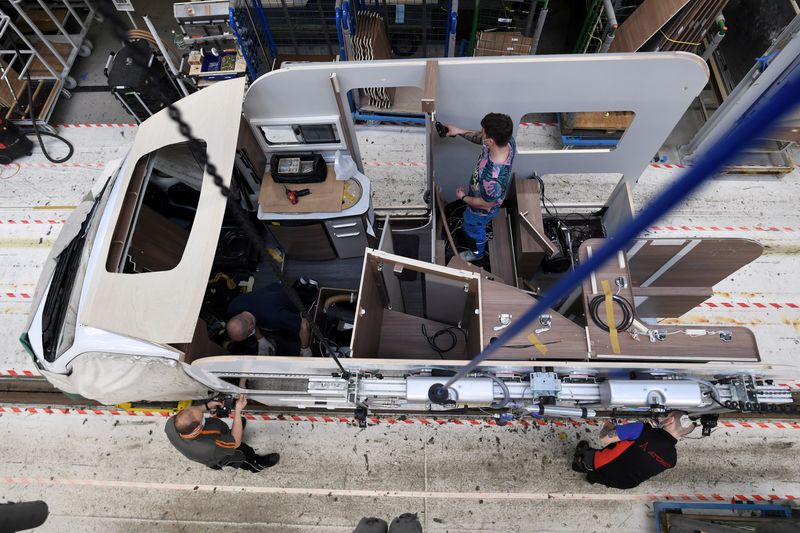BERLIN (Reuters) - German manufacturing activity shrank in March at the fastest pace in almost three years, a survey showed on Monday.
S&P Global (NYSE:SPGI)'s final Purchasing Managers' Index (PMI) for manufacturing, which accounts for about a fifth of Germany's economy, fell to 44.7 in March from 46.3 in February. It marked its lowest level since May 2020, well below the 50 mark that separates contraction and expansion in manufacturing activity.
The German manufacturing PMI has languished below the 50 mark since July. A Reuters poll of analysts had forecast a March reading of 44.4, in line with an earlier flash reading.
The fall was driven mainly by the supplier delivery times sub-component, which is inverted in the calculation of the PMI and therefore has a negative directional influence as it rises.
"The improvement in supplier performance was by far the greatest seen in the series history and represented an unwinding of the unprecedented disruption brought about by the pandemic," the report by S&P Global said.
The decline in the main index masked a second consecutive uptick in production levels, the report by S&P Global said.

"Falling input costs were another plus-point, with lower pipeline price pressures as a welcome development for inflation, although this was in large part a symptom of cooling demand," said Phil Smith, economics associate director at S&P Global Market Intelligence.
German manufacturers' expectations towards future production, although positive, were subdued by historical standards in March, according to the report. There were concerns towards future demand, due to geopolitical uncertainty, high inflation and tightening financial conditions.